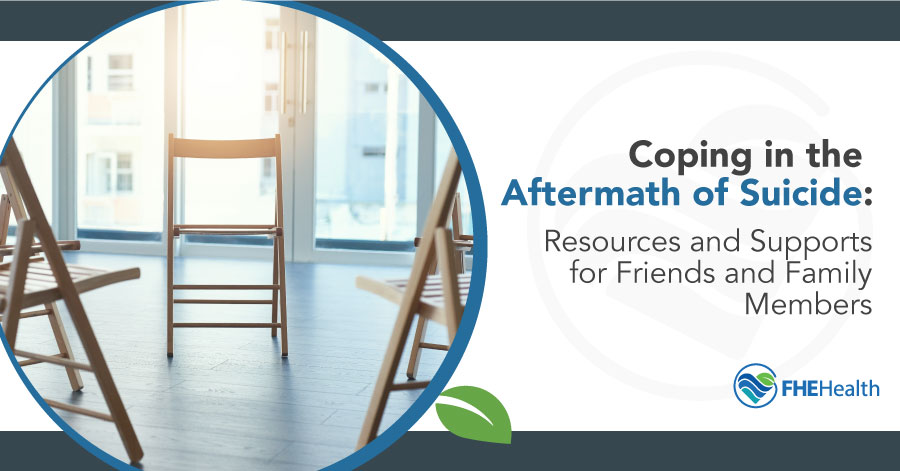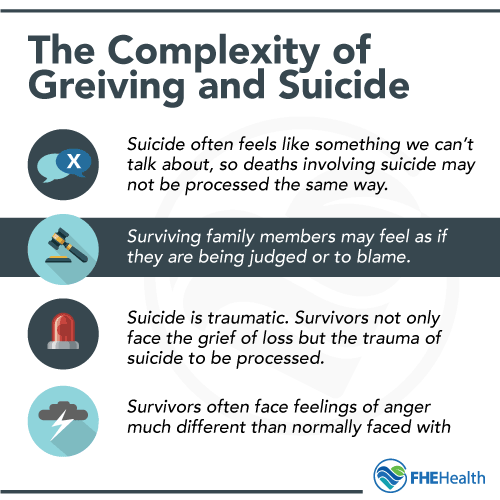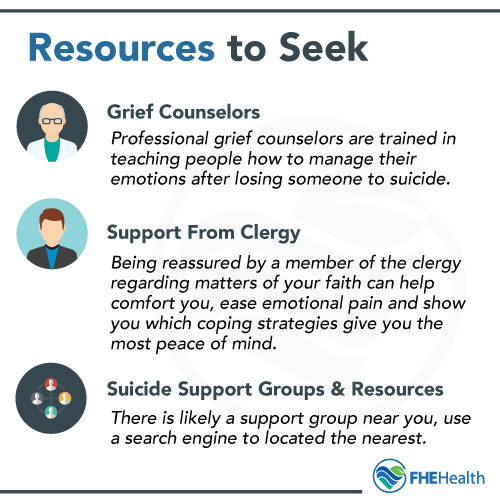
Suicide is the 11th leading cause of death in the United States, and 49,476 Americans died by suicide in 2022. Losing a loved one is a difficult experience, and grief affects people in many different ways. In his book Trauer und Melancholie (Mourning and Melancholia), Freud described two responses to loss: grief and melancholia.
According to Freud, grief (mourning) refers to the experience of intense sorrow and distress over the loss of a loved one, a process Freud thought took place in the conscious mind. Melancholia, an outdated term for what’s now called clinical depression, is defined by Freud as pathological grieving for losses that can’t be fully identified or understood.
Unlike grief, which Freud considered a healthy, natural response to the loss of a loved one, he viewed melancholia as an unnatural, unhealthy response to a subjective perception of reality. The field of psychology has evolved in the last century, and we take a more nuanced view of depression and neurosis today. However, Freud’s views on how people respond to loss are a good starting point for a discussion about grief.
Grieving Is a Natural, Necessary Response to a Suicide

Experiencing and understanding powerful, disturbing emotions following a loved one’s suicide is an intense, complex process involving conflicting feelings of love, anger, disbelief and sometimes hate that many people find difficult to accept. Talking to a living human being one day and finding out they died by suicide within hours or days of interacting with them may be the most devastating event a person can endure.
Fortunately, many resources are available that provide compassionate support to help you through the grieving process. While grieving is a natural process and should be allowed to complete its cycle, some people find it difficult to grieve healthily. Talking to people who’ve been through a similar experience can be invaluable.
What Makes Suicide Different?
Losing a loved one under any circumstances is difficult. However, compared to other circumstances, grieving the loss of a loved one by suicide can be particularly challenging. Losing someone to a physical health condition or old age isn’t unexpected, so people have time to prepare. Suicide is often sudden, with no obvious warning signs. In some communities, mental health challenges are stigmatized, making it difficult for survivors of suicide to talk about their experiences with their friends.
Suicide can also bring about mixed emotions. If someone dies in an accident, loved ones can direct their anger at a third party they view as “responsible” for the accident. Victims of suicide are also, in the eyes of the surviving loved one, the perpetrator, creating conflicting emotions that can be complicated to work through.
Grieving and Your Physical Health
Suicide bereavement affects your psychological and physical health. Not allowing yourself to grieve healthily may induce physical conditions harmful to your overall health and well-being. Feeling depressed, isolated and confused activates the release of stress hormones that may cause:
- Migraines
- Backaches
- Eczema, hives, or skin rashes
- Hypersomnia (sleeping too much)
- Insomnia
- Joint aches
- Heart palpitations
- Ulcers
- Fatigue or lack of energy
- High blood pressure
People who are grieving may visit their doctor multiple times and take prescriptions for illnesses that are emotional or psychological. If you’re suffering from one or more of these health problems, disclose to your doctor that you’re grieving the death of a loved one by suicide. Your doctor will probably refer you to a grief counselor who can help you cope with the stress of grieving.
Resources for Helping You Cope in the Aftermath of Suicide
Grief Counselors

Professional grief counselors are trained to teach people how to manage their emotions after losing someone to suicide. Grief counselors may be necessary if you find yourself unable to function normally while dealing with powerful emotions.
Guilt, despair, confusion and fear are all common emotions people experience after a loved one dies from suicide. Ignoring and suppressing these emotions prevents these intense feelings from being understood and assimilated into the everyday emotions you normally experience.
Grief counselors offer nonjudgmental opportunities for people to process and explore upsetting emotions caused by the suicide of a loved one. They also inform clients about the uniqueness of grief as an emotion and that its presentation, style, intensity and length vary dramatically among individuals. Counselors further show clients how to reframe their loss in a more positive way to facilitate acceptance and help them assimilate grief emotions.
Support From Clergy
Seeking reassurance from a member of the clergy regarding matters of your faith can help comfort you, ease emotional pain and show you which coping strategies give you the most peace of mind. Even those who aren’t religious may find talking to someone who regularly counsels grieving individuals can help them in their search for closure following the suicide of a loved one.
Suicide Support Groups and Resources
You may find it helpful to attend a support group or join an online community of people who are also suffering like you. Some useful resources include:
- HeartBeat: Grief Support Following Suicide. This nonprofit organization runs peer support meetings and provides a variety of resources to help suicide survivors.
- SAVE.org. Honor your loved one through the SAVE Named Memorial Program and access empathetic support as you navigate grief.
- Parents of Suicides and Friends & Families of Suicide (POS-FFOS). Join a community, especially for parents who lost their children to suicide or a general support group for friends and families of suicides.
- Tragedy Assistance Program for Survivors. TAPS supports the loved ones of veterans who died by suicide during or after their military service.
- United Survivors. Join an international community of people who are attempting to turn their pain into purpose. United Survivors runs support groups, webinars, courses, workshops and campaigns to improve mental health support.
- Alliance of Hope for Suicide Survivors. Access online support in the form of a forum, Zoom consultations and a resource library. Connect with support groups, and get advice about how to talk to children and teens about suicide.
- Friends for Survival. A volunteer-run group, Friends for Survival engages in outreach and advocacy for suicide survivors and runs a toll-free suicide loss helpline.
Suicide loss survivors often form local support groups, and using a tool such as the one American Foundation for Suicide Prevention provides can help you locate a group in your area, where you can communicate with friends and loved ones.
Helping Children Deal With the Loss of a Loved One by Suicide
It can be hard to be up front with a child regarding suicide, but it’s a good idea to try to send the message that death is a normal process and everyone deals with death in their own way. Children under the age of 5 generally can’t comprehend the phenomenon of death. For younger children, consider explaining that someone dies when their body is no longer working properly instead of trying to explain what suicide encompasses.
Older children usually understand the finality of death and may experience more difficulty in dealing with the suicide of a loved one. Depending on the religious beliefs of the child’s family, answers should adequately explain what the child wants to know without evading the actual meaning of the question.
Does It Get Easier?
For most people, the pain of grief eventually lessens as time passes and the demands of daily life take over once again. While it does get easier, it’s entirely normal and healthy for emotions associated with grief to reemerge.
For example, a song, restaurant, movie, dream or holiday may remind you of the loved one who died by suicide, provoking feelings you experienced at the beginning of the grieving process. Accept this when it happens, and take a moment to think about what you’re feeling instead of suppressing uncomfortable emotions.
If Suicide Has Caused Mental Health Issues or Substance Use
As a leading mental health and addiction treatment center in Florida, FHE Health provides support for people with substance abuse disorders who find the loss of a loved one to suicide worsening their addiction. For recovering addicts who are no longer using, coping with the suicide of a sibling, parent or best friend can trigger cravings and the urge to start abusing drugs or alcohol again.
Call FHE Health today if you need to talk to a caring specialist about coping with a loved one’s suicide while dealing with a substance addiction.






